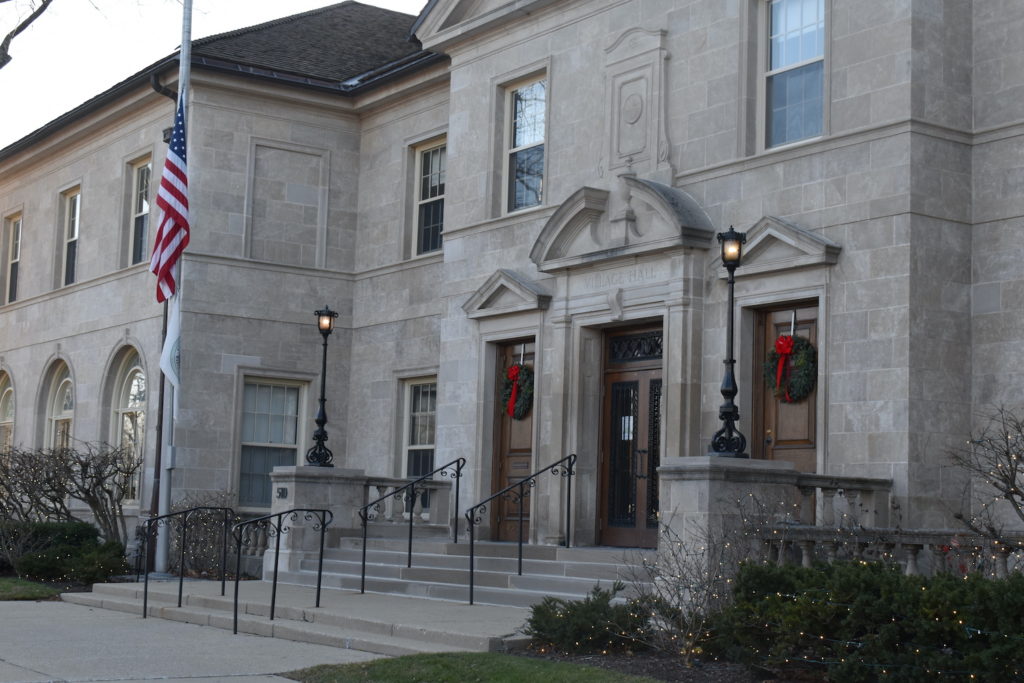
$200,000 contract sets comprehensive plan in motion for Winnetka parks
Winnetka Park District commissioners took a step Thursday toward a comprehensive master plan that Executive Director Shannon Nazzal said would be a visionary document looking 10 years into the park district’s future.
By unanimously approving a $199,570 contract with Maine-based Berry, Dunn, McNeil & Parker, known generally as BerryDunn, the board will get a six-phase plan that includes everything from demographic analysis and a community needs assessment, to reviews of the district’s facilities and a level of service analysis.
Commissioner Eric Lussen did not attend the July 18 meeting.
It will be the district’s first attempt at such an effort since a previous board adopted a strategic plan in 2017. The COVID pandemic short-circuited its implementation, Board President Cristina Codo said.
“I think this is an excellent way to expand beyond a needs assessment, beyond a strategic plan,” she said.
BerryDunn’s quote was the highest of four companies that responded to Winnetka’s request for proposal; however, Nazzal said BerryDunn, with which she has worked with previous employers, was the one that best met the district’s needs.
The firm has the technical expertise, and a team that is familiar with governmental projects, she said. Among the team members is Kansas-based ETC Institute, which will handle the plan’s survey and marketing segments. Nazzal said the park district has previously worked with that group and believes it can provide statistically valid community survey information.
Roughly half of the work should be done by the end of December, Finance Superintendent James Crocker said in his report to the board.
The decision didn’t come without minor bumps concerning its cost. Commissioner Warren James indicated some sticker shock at the price.
“I’m in full support of a comprehensive strategic plan, but I’m stunned,” at the new figure, he said, noting the board put $50,000 in its 2024 budget for the comprehensive plan.
James asked if other nearby communities had completed similar projects at that cost level. Nazzal said the price, which the agreement states will not go up, matches cost levels for similar work in the area, a comment with which James initially disagreed.
Crocker explained that staff only budgeted $50,000 for the 2024 financial year because they knew the district was searching for a successor to then-outgoing Executive Director John Peterson.
“Knowing it would take time to select a new executive director, develop (a request for proposals), vet the applicants and then choose a candidate, staff only partially budgeted for this initiative ($50,000) in 2024,” he stated in his written report to the board.
The 2024 budget adjustment of $149,570 that he recommended will be paid out of the district’s reserves, which currently stand at $3.02 million and will cover all the project costs this year and in 2025, Crocker said.
Nazzal told James and his board colleagues that a comprehensive plan differs from a strategic plan, has more requirements, and can lead to the district winning state and national accreditation.
“A comprehensive master plan is a visionary document … that leads into a strategic plan,” she said.
James voted with the rest of the board to approve the budget amendment.
Commissioner Cynthia Rapp warned colleagues that they might not like what the finished product recommends, but should be committed to providing honest feedback, “and to go through the process with fidelity” in order to avoid the fate of the 2017 effort.
Everyone involved in the process cares about different things, she said; people might be passionate about the lakefront, while others could focus on green space, or pickleball, and the recommendations might not include those passions.
“We might be surprised at the result, it might have opinions we disagree with,” she said, adding, “We need to be fully committed and be ready for that. … It’s going to be a little uncomfortable for us, but it’s worthwhile doing it.”
The Record is a nonprofit, nonpartisan community newsroom that relies on reader support to fuel its independent local journalism.
Become a member of The Record to fund responsible news coverage for your community.
Already a member? You can make a tax-deductible donation at any time.

Kathy Routliffe
Kathy Routliffe reported in Chicago's near and North Shore suburbs (including Wilmette) for more than 35 years, covering municipal and education beats. Her work, including feature writing, has won local and national awards. She is a native of Nova Scotia, Canada.


